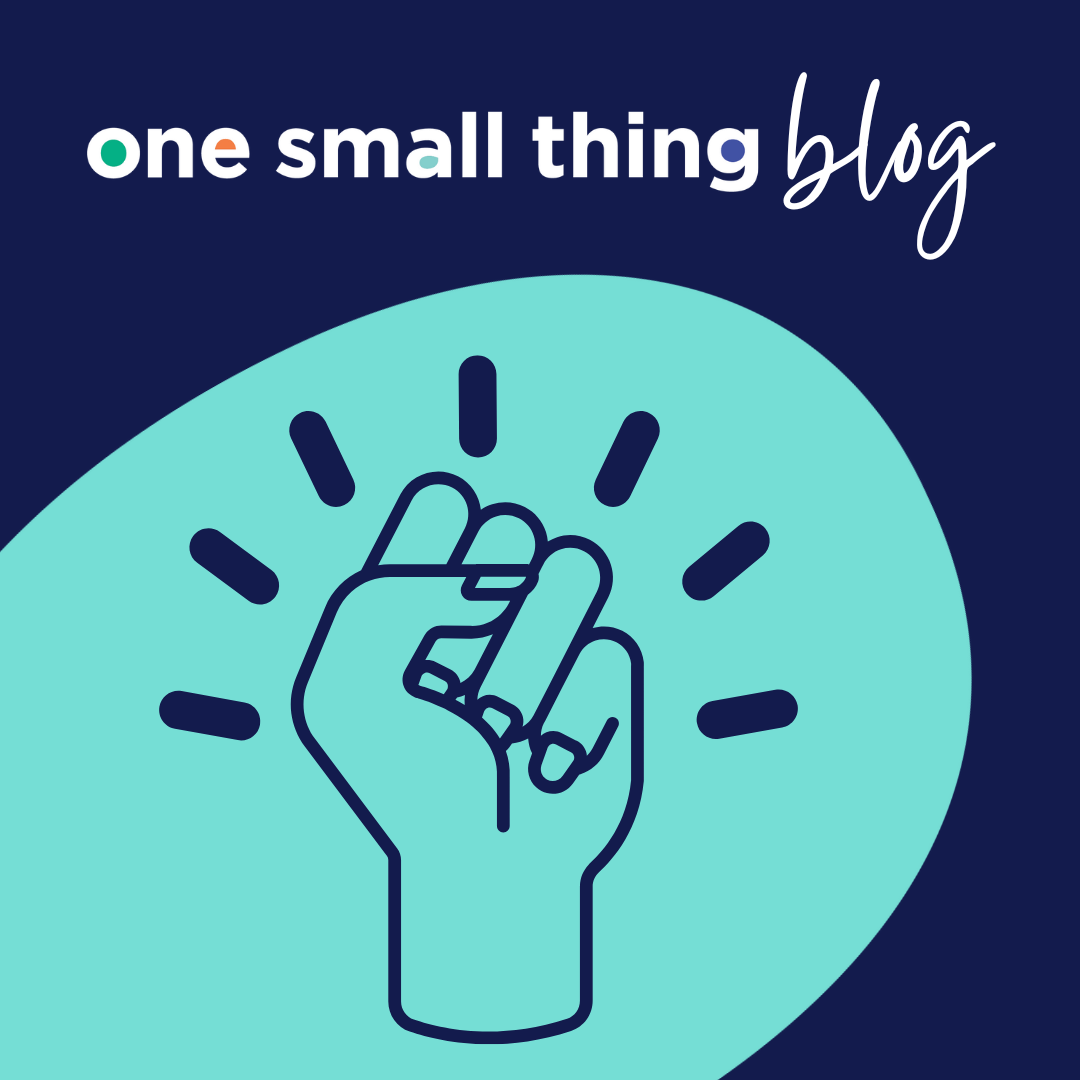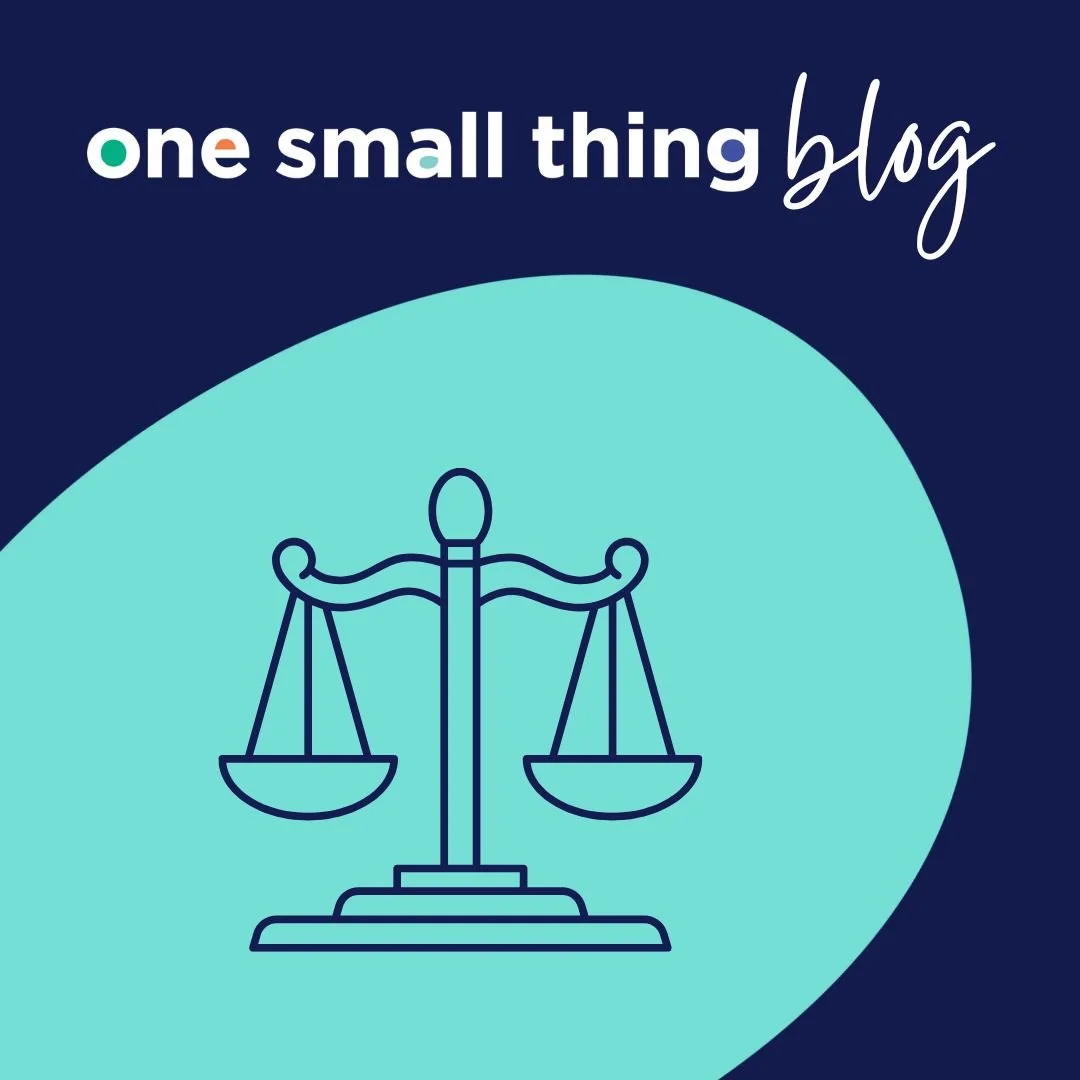Reflecting on probation reset and early release schemes
Lilly Lewis, Women’s Involvement Advisor, One Small Thing
In the next in her series of blogs Lilly Lewis, One Small Thing’s Women’s Involvement Advisor, reflects on the various changes that have been implemented in our justice system over the last year. Specifically, Probation Reset, and early release measures. Lilly explores what impact these policies have had for women, and what needs to be in place to ensure they don’t cause further harm.
I think that the impact of the changes to probation supervision that happened earlier this year, alongside early release from prison has been significant for women affected by the justice system.
Earlier this year, the previous government implemented Probation Reset. This means that those on community orders, and the majority of those leaving prison have seen their support from probation shorten by a third. Due to the prison overcrowding crisis, both the previous government and the new incoming Labour government introduced early release schemes to help reduce the prison numbers. The SDS40 scheme means those in prison eligible will be released 40% through their sentence. SDS40 replaced the previous government’s early release measures which saw around 120 women released early in Spring 2024.
I think, without the appropriate support systems in place that help with rehabilitation, especially for those being released early, policies that reduce supervision support see women finding it more challenging to reintegrate into society, leading to higher rates of reoffending and recall rates. This can also have a detrimental effect on their mental health. This is particularly important for women who may have experienced trauma.
In my experience, women struggle to find stable employment or housing without the assistance of a Probation Officer who can help navigate these challenges. This could also lead to increased poverty. This is where women specific support workers, and through the gate services could really help.
Many women involved in the criminal justice system are primary caregivers. Reduced support can contribute to family breakdowns, affecting their children and increasing the likelihood of the next generation being involved in the system. In my own experience, my relationship with my children broke down for many years and I am still working on these relationships today, 10 years on.
These impacts highlight the importance of adequate support systems for women involved in the criminal justice system, as they are particularly susceptible to the challenges posed by reduced probation services.
Without adequate support, women may feel that they are at a high risk of reoffending. The uncertainty about reintegration could mean they do not want to leave prison early. Additionally, many women worry about finding safe and stable housing upon release. If they have no secure place to go, they might prefer to remain in prison. Without access to job placement programs or training, women may feel unprepared to enter the job market, making the prospect of leaving daunting.
Women may be concerned about returning to unsafe environments or relationships. Without a support system, they may feel vulnerable to violence or exploitation. If they have previously faced barriers in accessing community services or support programs, they may doubt the effectiveness of resources available to them post-release.
To support women leaving prison whether on early release or not, a comprehensive network of community resources and support services is essential. Access to safe and affordable housing is critical. Housing programs can help women secure a place to live as they reintegrate into the community. Access to trauma informed counselling and mental health services is crucial.
Women leaving prison early require through the gate services. I have seen this need firsthand in my local area, which has prompted me to set up ‘Watering Your Soul CIC’, a new service for women with multiple unmet needs. Others in the community have also recognised this need, and I have been lucky to gain the support of local organisations and stakeholders, as well as women who have direct experience of the justice system.
I recently spoke with a local Probation Officer who also shared her concerns for the women, specifically those convicted of low level crimes not getting the support to reduce reoffending, and address their trauma.
Allowing time to build trust with women released earlier from prison is essential for creating a supportive, empowering, and inclusive environment that promotes healing, growth, and successful reintegration into the community. I would love to see more places such as One Small Thing’s, Hope Street, so women can heal, for better outcomes for both them and their children.
These factors reflect the complex interplay of challenges that women face regarding their reintegration into society after prison.
The recent announcement of the Women’s Justice Board it such an amazing achievement and a step in the right direction. This announcement signifies a commitment to gender equality by creating a board dedicated to addressing issues affecting women who are impacted by the justice system. This recognises the unique needs and challenges faced by women ensuring their voices are heard and their experiences are considered.
A Women’s Justice Board represents positive steps towards advancing inclusivity and justice reform. Focusing on specific needs of women in the justice system will hopefully drive meaningful change, improve outcomes, and promote a more just legal system for all women.
Written by: Lilly Lewis, Women’s Involvement Advisor at One Small Thing










